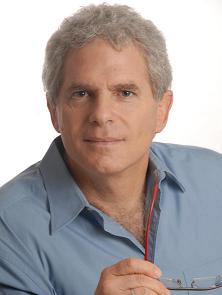Over the past few decades, Israel has increasingly “caught up” (or down) with the rest of the western world in the attraction of its youth to drugs – and especially to alcohol. No doubt that amongst Israeli teens, there is a legitimacy or coolness in public drinking.
However, while some weekend experimentation is clearly normative and not cause for alarm, parents must be keep their antennae up to assess whether their teen is caught in a more troubling subculture of abuse. The recent tragic case of Li Vitkin is a case in point.
Teens who abuse drugs and alcohol tend to hang in the same crowd, where they receive the moral support of like-minded peers. This group’s subculture often leads to conflict with persons in authority (such as parents or teachers) and compromised academic performance. Energy and attention are often focused on the peer group and on escaping detection by adult authority figures. The teen may be a good talker, appearing mature beyond their years; however, there is a clear discrepancy between their words and behavior.
Parents may be oblivious. The teen may socialize far from the house and hide their academic decline. Not until their world starts to cave in on them by way of falling grades, school suspension or conflict with the law, are many parents finally alerted to the seriousness of their child’s problems. Even upon detection, the child will seek to avoid the gravity of the situation through denial or blaming of others. (Caution: the more strenuous the defense, the more likely the offence.) And due to the upsetting nature of the discovery, parents are vulnerable to accepting that matters are either not so serious or the result of others’ influence upon their child.
Effective intervention requires a unified front and determination on the part of the parents to withstand the pushback from their drug/alcohol abusing teen. It is highly uncommon for teens to take responsibility when confronted. Denial is typically the initial tactic, followed by a campaign of minimization. As the parent tries to hold the teen accountable, the teen then goes on to bargain and manipulate their parents so as to avoid responsibility and necessity of change.
Treatment must include involvement in, and supervision of, the teen’s activities – possibly including random drug or alcohol testing. While the teen will claim they can be trusted, the simple fact is that the teen’s judgment is poor and they cannot be relied upon for honesty. Alcohol testers can be purchased online for under 100 Shekels.
In addition, the teen will have to be encouraged to expand their social milieu. Although it may be useless to tell a teen not to hang out with prior or current friends, parents should require their teen to obtain a part-time job, maintain grades appropriate to academic ability and be involved in recreational and/or volunteer activity.
The objective is to help the teen become engaged in healthy, pro-social and skill developing activities that are incompatible with drug and alcohol use. The strategy is to swap the time that was available for drugs and alcohol with these other activities. Collectively, these are regarded as structural interventions.
Parents will likely require counseling to support their implementation of structural interventions. Whereas parents need to be intrusive to start, they may also require support to recalibrate rules, roles and expectations when the teen responds to treatment. In addition, some degree of family therapy will be required to help parents and teen restructure their relationship. Counseling for the teen on an individual basis may also be helpful to sort out relationship issues, self-esteem issues and to address academic and vocational direction.
In conclusion, teens benefit from “space” to try out different behaviors and experiences, and most of the time it’s not cause for concern. But don’t neglect your duty to keep track of their school performance and friends. And be ready to step in if the situation warrants.
Randy Tischler, MSW, MFT
Couple & Family Therapist, Psychotherapist, Mediator
23 Rashi Street, Tel-Aviv
Tel: 054-810-3550
href="mailto:randy.tischler@gmail.comrandy.tischler@gmail.com">">randy.tischler@gmail.com
www.here4u.co.il





